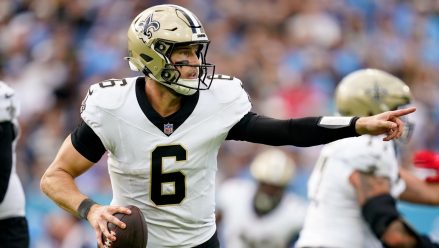The U.S. gambling industry just had its doomsday clock moved to one second to midnight.
The Senate passed the “One Big Beautiful Bill Act” (OBBBA) Tuesday with Vice President JD Vance casting the tie-breaking vote. Tucked into the bill is a tax provision that sounds like a “this probably won’t really have an effect on me” type of thing: Gamblers can only deduct up to 90% of their losses.
But this is a thing. A big thing. Like, the thing. At the risk of sounding like Chicken Little, it’s a blueprint for the complete, total, and swift collapse of much of the gambling market in the United States.
The sky is falling, folks.
The taxman
Here’s how gambling taxes have always worked: If you win $100,000 and lose $100,000, your net profit is zero, and you owe no tax. It’s how nearly every business is taxed. You pay based on your profits, not your gross revenue.
The Senate bill changes that.
Under this provision, you can only deduct 90% of your losses. So, in the same example — $100,000 in winnings, $100,000 in losses — you can only deduct $90,000. That means you’re taxed as if you made $10,000, even though you didn’t.
At the standard 24% federal tax rate, that’s a $2,400 tax bill on zero profit.
Another example: Win $101,000, lose $100,000, and you’re technically up $1,000. Under this new law, you’d owe $2,640 in taxes— more than twice what you made.
That’s not a tax on income. That’s a tax on volume. And for professional gamblers — who play high-volume, low-margin games to squeeze out small but consistent profits — it’s a death sentence.
But this isn’t just about the pros getting squeezed.
Professional and high-volume gamblers are the backbone of the system. In sports betting, they’re the “sharp money” that helps sportsbooks set accurate lines and balance risk. In daily fantasy, they’re the reason giant prize pools exist.
How much do they matter? And what happens if they disappear?
It’s a good question. So good, in fact, I burned one of my free Google Gemini Deep Research queries on it. Most of the following comes from that research.
In DFS, fewer than 2% of players win 90% of profits. They’re not just winning — they’re funding the prize pools with massive daily entry fees.
In sports betting, they account for massive volume, which drives liquidity and efficiency, which benefits every bettor by narrowing odds and spreads.
These aren’t whales throwing around money. They’re skilled, data-driven businessmen and women treating gambling like a business. Take them out, and the ecosystem collapses.
If this bill becomes law, professional gamblers — already operating on razor-thin margins — will exit the regulated U.S. market. This isn’t a guess; it’s simple economics.
What comes next is a chain reaction, per our AI pal.
- Betting volume drops: High-volume players cycle millions through sportsbooks. When they leave, so does that action.
- Odds get worse: Without sharp money helping to shape lines, sportsbooks will widen spreads and increase the vig to manage risk. Everyone pays more to play.
- Prize pools shrink: In DFS, remove the high-volume pros, and a $10,000,000 contest becomes a $10,000 contest. That’s not just bad for them. It’s bad for everyone chasing those prizes.
- States lose money: Gambling taxes are based on operator revenue, which comes from handle. Less volume means less revenue. Less revenue means lower tax collections.
Five card death
If you were around in 2011, you remember poker’s “Black Friday.” The feds shut down the big online poker sites, froze accounts, and made the game vanish overnight. It took years for online poker to claw its way back — and it’s still not fully recovered. It went from coma to … well, I suppose “light coma” would be a good descriptor.
What’s happening now is worse.
Back then, the collapse came from enforcement. Now, it’s coming from policy — deliberate legislation that makes professional play economically irrational. And it’s not limited to poker. This hits sports betting, DFS, anywhere pros ply their trade.
Phil Galfond, one of poker’s top names, said it plainly. “You could pay more in tax than you won.”
States should be screaming
States have come to rely on gambling tax revenue. In 2023, total commercial gaming revenue in the U.S. approached $70 billion.
That revenue is driven by volume.
If professionals exit, volume drops. If volume drops, operator revenue shrinks. If revenue shrinks, so do state taxes.
This is a federal bill gutting the foundation of state gambling.
Ugh.
By the way, if you’re not a pro? Honestly, the financial end of it doesn’t really matter. If you win big enough to get a 1099, you’re paying taxes on it like it’s regular income. If you’re not already deducting, then this is truly not a big thing. Of course, good luck winning a million dollars in a DFS tournament when the prize pools crater.
Anyway, the Senate’s version of the bill isn’t final. The House version caps deductions at 100% of winnings, which, in layman’s terms is “yeah, of course.” A conference committee will now seek to reconcile the differences between the two.
That means there’s a window. Barely.
I assume industry groups like the American Gaming Association are already lobbying. But if this 90% cap survives, the fallout will be nuclear.
The volume will vanish. The sharps will disappear. The prize pools will dry up. The taxes will crater.
And the United States will have chosen, through legislation, to destroy its own legal gambling market.




